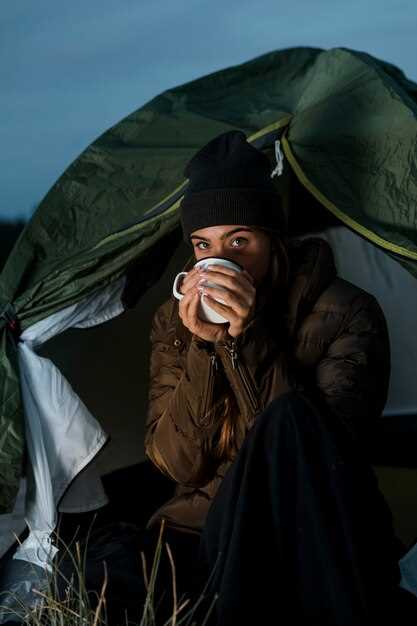
Embarking on solo night expeditions outdoors can be a thrilling venture, offering a unique opportunity to connect with nature under the stars. However, it is crucial to prioritize your safety while exploring the wilderness alone after dark. This article provides essential tips to ensure your travel experience is both enjoyable and secure.
When planning your solo night adventure, preparation and awareness of your surroundings are key. Understanding potential risks and having strategies in place can make all the difference. In this guide, we’ll cover critical travel considerations, gear recommendations, and practical safety measures that will empower you to navigate the night with confidence.
From choosing the right location to equipping yourself with essential tools, these safety tips will help you embark on a memorable solo expedition while minimizing risks. Join us as we delve into how to safely enjoy the beauty of the outdoors when the sun goes down.
Choosing the Right Location for Night Adventures
When planning a solo night expedition, selecting the right location is crucial for your safety and enjoyment. Start by considering areas you are already familiar with. Familiarity with the terrain can help you navigate more easily and make informed decisions in case of an emergency.
Next, research the area’s accessibility. Choose locations that are easy to reach, with established trails and minimal barriers. Look for places that have good lighting options, such as campgrounds or designated viewing areas, which can enhance both safety and overall experience.
Consider the local wildlife and environmental factors. Some regions may have active wildlife during the night, which could pose risks. Ensure that the area is safe from potential hazards like steep cliffs, unstable ground, or water bodies. Consulting local resources or guides can provide valuable insight into the specific risks associated with your chosen location.
Evaluate the weather conditions before your trip. Certain areas may be prone to sudden weather changes that could impact your solo travel. Always check forecasts and choose locations that allow for quick and safe retreat in case the conditions deteriorate.
Lastly, inform someone about your plans and expected return time. This tip ensures that in the event of an unexpected situation, someone knows where to look for you. Choosing a location that is both exciting and safe will enhance your solo night expedition while minimizing risks, allowing you to focus on the adventure that awaits.
Essential Gear for Solo Night Travel

When planning a solo night expedition, having the right gear is crucial for ensuring your safety and comfort. First and foremost, a reliable headlamp or flashlight is essential. Look for a model with adjustable brightness and a long battery life to navigate dark trails effectively. Additionally, carrying extra batteries can be a lifesaver in case of unexpected power drainage.
Another must-have item is a high-quality multi-tool or knife. This versatile tool can assist in various situations, from meal preparation to emergency repairs. Make sure to familiarize yourself with its functions before heading out on your trip.
A portable power bank is also important for keeping your devices charged. Whether it’s your phone for navigation or a GPS device, staying connected can enhance your safety. Consider bringing a solar charger as a backup for longer excursions.
A durable and insulated sleeping bag is important if you plan to rest overnight. Ensure that it is suitable for the temperature range you expect, as staying warm is crucial for staying safe while traveling solo at night.
Don’t forget to include a map and compass in your gear. Even if you have a GPS, having traditional navigation tools can help you find your way if technology fails. Familiarize yourself with how to use them effectively, so you can rely on your skills if needed.
A first aid kit is another essential component of your solo night travel gear. Pack it with necessary items for treating minor injuries, and be aware of how to use each item. Safety should always be a priority, especially when traveling alone.
Lastly, appropriate clothing and footwear are vital. Wear layers to regulate your body temperature and select sturdy, comfortable shoes to support long walks. Ensure that your clothing is weather-appropriate, keeping you dry and protected from the elements.
Navigation Strategies When Exploring Alone at Night
Exploring outdoors at night can be both thrilling and daunting, especially when done solo. Proper navigation is crucial for ensuring safety and confidence during your travels. Here are essential tips to consider for navigating effectively when you are alone at night:
- Familiarize Yourself with the Area:
Before setting out, study the area during daylight. Use maps to identify key landmarks, trails, and potential hazards.
- Use Reliable Navigation Tools:
Carry a compass and a topographic map, and know how to use them. GPS devices and smartphone apps can also be useful but remember they rely on battery life and signal.
- Plan Your Route:
Outline your travel path before leaving. Share your route with someone you trust, so they know where you will be. This enhances your safety and gives others a reference point.
- Utilize Waypoints:
Identify and memorize key waypoints along your route. These can be natural markers such as distinct trees or rocks, or man-made structures like cabins or signs.
- Stay Alert to Your Surroundings:
Be attentive to sounds and changes in the environment. Nighttime can mask certain dangers; avoid distractions and focus on navigation.
- Use Headlamps or Flashlights:
Equip yourself with a reliable light source. A headlamp allows for hands-free navigation, making it easier to manipulate your map or compass in low-light conditions.
- Travel at a Measured Pace:
Move slowly and deliberately. This approach not only helps with navigation but also reduces the risk of accidents in unfamiliar territory.
- Know How to Retrace Your Steps:
Practice retracing your route in your mind. In case you get lost, being able to backtrack can be a lifesaver.
- Stay Aware of the Time:
Keep track of time to avoid being caught in the dark. Use this awareness to ensure you’re always moving towards safety.
By implementing these navigation strategies, you can enhance your safety and make your solo adventures at night more enjoyable. Proper preparation and mindfulness will not only improve your travel experience but also help you return home safely.
Staying Aware: Tips for Keeping Your Senses Sharp

When embarking on a solo night expedition, maintaining acute awareness is crucial for your safety. Here are some tips to help keep your senses sharp during your travels.
1. Minimize Distractions: Reduce background noise and avoid activities that might divert your attention. Keep your phone on silent, and consider leaving headphones behind to fully engage with your surroundings.
2. Use Your Senses: Rely on all five senses to gather information about your environment. Listen for unusual sounds, watch for movements in the dark, and breathe in the scents around you to stay connected to the area.
3. Stay Alert: Shift your focus regularly. If you find your mind wandering, consciously redirect your attention to your surroundings. Take brief moments to pause and observe what’s happening around you.
4. Trust Your Instincts: If something feels off, don’t ignore it. Your intuition can be a powerful tool for safety. Pay attention to that inner voice and take the necessary precautions.
5. Practice Situational Awareness: Continuously assess your environment. Identify potential hazards, note escape routes, and keep track of where other people are located. This awareness can help you react appropriately to any situation.
6. Limit Consumption: Avoid alcohol or any substances that can impair your judgment. Staying clear-headed is essential for making sound decisions when navigating through unfamiliar terrain at night.
7. Equip Yourself: Bring tools that can enhance your sensory awareness, such as a reliable flashlight and night-vision equipment. Good gear can aid in visibility and make it easier to detect any changes in your environment.
By implementing these strategies, you can enhance your awareness during solo night travels, ensuring a safer and more enjoyable experience. Maintain vigilance, trust your senses, and always prioritize your safety.
Emergency Preparedness: What to Do If Things Go Wrong
When embarking on solo night expeditions, being prepared for emergencies is crucial for ensuring your safety. Here are essential tips to consider that can assist you in navigating unpredictable situations.
First, always inform someone about your travel plans. Share details such as your intended route, expected return time, and emergency contacts. This step ensures that someone knows where you are supposed to be and can initiate a search if you fail to return as scheduled.
Carry a comprehensive first aid kit, including necessary supplies for treating common injuries like cuts, sprains, and bites. Learn basic first aid principles so you can act quickly and effectively if needed. Additionally, familiarize yourself with your kit’s contents before heading out, ensuring you know how to utilize them correctly.
Have a reliable communication method on hand. A charged mobile phone may suffice, but consider carrying a satellite phone or a personal locator beacon (PLB) for areas with limited cell service. Always tell someone when you expect your device to be offline, and check for signal before venturing deeper into remote areas.
If you find yourself in distress, stay calm and assess your situation thoroughly. Avoid panicking, as it can cloud your judgment. Identify your immediate needs, whether it involves finding shelter, signaling for help, or treating an injury.
Prepare to signal for help if necessary. Carry items such as a whistle, a mirror, or flares that can attract attention. Familiarize yourself with signaling techniques so you can effectively communicate your location in case of an emergency.
Always have a plan for finding shelter. If you are lost, it’s often safer to stay put than to wander, especially at night. Seek a safe location to rest, preferably away from potential hazards such as cliffs or water sources.
Lastly, practice mindfulness of your environment. Recognize weather changes and be prepared to adapt your plans accordingly. Prepare for colder temperatures at night, and always know how to find your way back using natural landmarks or a reliable GPS device.
By following these safety tips and being proactive about emergency preparedness, you can enhance your ability to deal with unexpected challenges during your solo night adventures.
Communicating Your Plans: Keeping Others Informed
When embarking on solo travel adventures, especially for night expeditions outdoors, it is crucial to keep others informed about your plans. This not only ensures your safety but also helps your loved ones monitor your well-being. Here are some essential tips to effectively communicate your travel intentions:
| Tip | Description |
|---|---|
| Share Your Itinerary | Provide detailed information regarding your travel plans, including the locations you will visit, expected routes, and timeline for your expedition. This allows others to know where to look if something goes wrong. |
| Regular Check-Ins | Establish a schedule for check-ins via text, call, or messaging apps. Regular updates help reassure friends or family about your safety and can provide critical information if emergencies arise. |
| Emergency Contact List | Compile a list of important contacts, including local authorities or nearby friends. Share this list with someone who can assist in case of emergencies during your solo trip. |
| Notify of Changes | If your plans change while traveling, communicate these changes immediately. Whether it is an alteration in your route or an unexpected delay, keeping others updated is essential for your safety. |
| Use GPS Tracking | Consider using GPS tracking apps that allow designated individuals to monitor your location during your solo night expedition. This adds an extra layer of security and peace of mind. |
By implementing these tips, you can significantly enhance your safety while traveling alone at night. Keeping others informed is a vital step towards ensuring not only your security but also the peace of mind for those who care about you.

